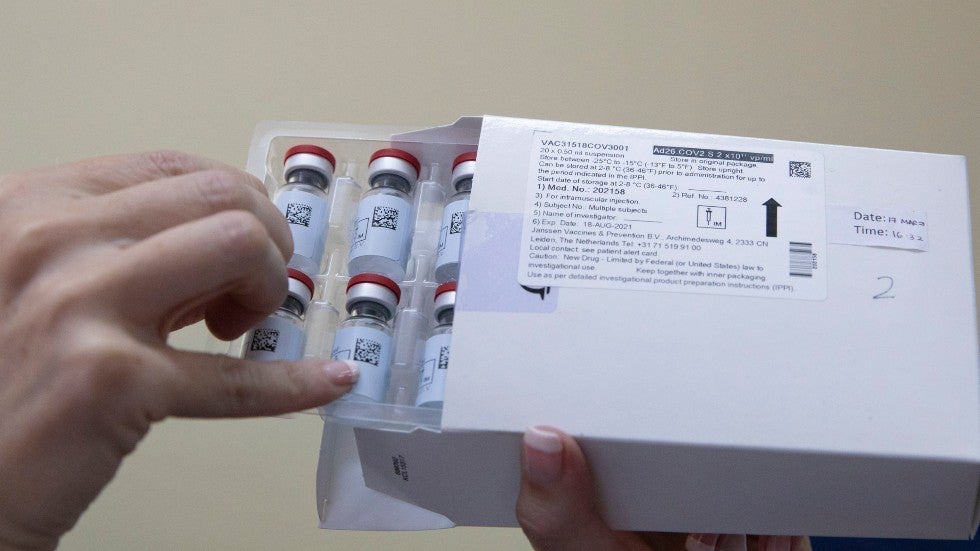A panel of advisers for the Centers for Disease Control and Prevention (CDC) will meet on Thursday to consider whether to impose restrictions on the Johnson & Johnson COVID-19 vaccine due to new data on rare blood clot issues, The Washington Post reported.
The Post, citing clinicians familiar with the meeting’s agenda, reported that the Advisory Committee on Immunization Practices will receive information indicating that blood clot rates have risen, particularly in younger women, though the issue remains extremely rare.
One federal official told the newspaper that nine people have died due to blood clotting complications related to the vaccine.
Previous reports confirmed that at least four people had died from the complications associated with the company’s vaccine. According to the Food and Drug Administration, women between the age of 30 and 49 years old have reported the highest rate of blood clotting issues, the Post noted.
“We are committed to understanding and communicating all known risks, including rare events of [the blood clot condition], and strongly support raising awareness of the signs and symptoms of this rare event,” Johnson & Johnson spokesperson, Jake Sargent, told The Post in an email.
One clinician who spoke with the newspaper said that advisors could either recommend the vaccine for use for certain populations, stop using it altogether or keep its current recommendation unchanged — suggestions that that are subject to final sign-off by CDC Director Rochelle Walensky Rochelle WalenskyCDC advisers to consider limits on J&J vaccine over blood clot issues Study suggests antibodies from two Moderna doses less effective at neutralizing omicron Boosted nursing home residents 10 times less likely to get COVID-19: CDC MORE.
Rochelle WalenskyCDC advisers to consider limits on J&J vaccine over blood clot issues Study suggests antibodies from two Moderna doses less effective at neutralizing omicron Boosted nursing home residents 10 times less likely to get COVID-19: CDC MORE.
A preferential recommendation could also be adopted as another solution, in which Moderna and Pfizer-BioNTech vaccines are recommended over the Johnson & Johnson vaccine, a federal official told the Journal.
Use of the Johnson & Johnson vaccine was temporarily halted in the U.S. earlier this year. In April, however, the vaccine was allowed to be administered again after officials determined that the benefits outweighed potential risks.
The Hill has reached out to the CDC and J&J for comment.
